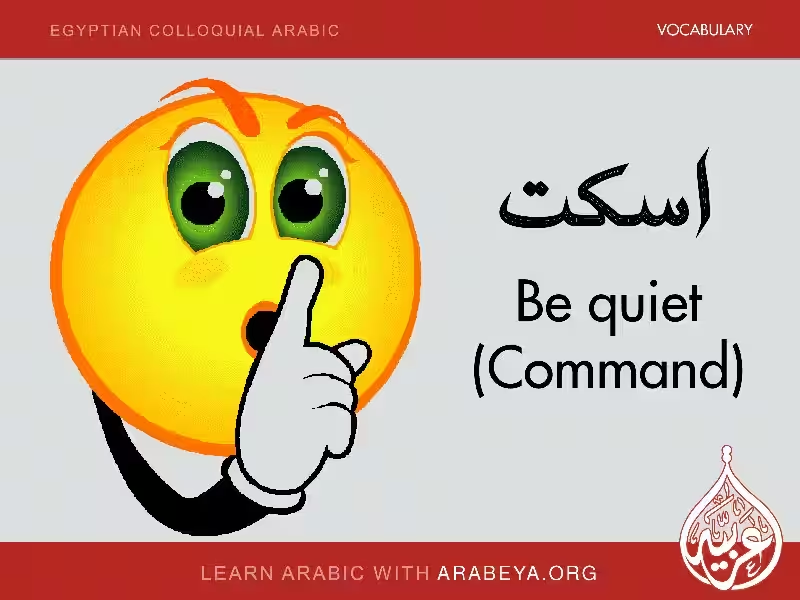
Navigating the world of Arabic swear words can feel like venturing into a minefield. The very concept of “how to curse someone” is fraught with cultural nuances, historical contexts, and personal sensitivities. Instead of offering a simplistic “how-to,” this article aims to explore the complexities of Arabic profanity, fostering a nuanced understanding rather than a prescriptive list. Understanding the nuances of language, not just the words themselves, is crucial.
The Subjectivity of Offense
The notion of “least offensive” and “most offensive” swear words is entirely subjective. A word deemed harmless in a casual setting might be deeply upsetting in a formal one. The recipient’s personal experience, cultural background, and relationship with the speaker all play a role in how a word is perceived. There’s no universal Arabic swear word scale. What may be considered mild criticism in one context might be a deeply personal insult in another. This sensitivity underlines the importance of context in understanding the impact of any word, regardless of its linguistic origins.
The Fluid Nature of Swear Words
A word considered taboo in one culture might be commonplace in another. The very definition of a swear word is not fixed; its meaning evolves and adapts over time. This fluidity reflects the dynamic nature of language and the ever-shifting cultural landscape. In Arabic, as in other languages, words can change from innocuous terms to potent insults depending on context and usage. This inherent flexibility underscores the importance of understanding the specific setting and intent behind the words.
Dialectal Variations and Cultural Nuances
Arabic, like many languages, boasts a multitude of dialects, each with its own unique vocabulary and linguistic habits. This means that a swear word in one dialect may not carry the same weight in another. Historical events, local traditions, or even geographical features can influence the development of swear words, making them culturally rooted and specific to a particular community. Trying to create a universal list of Arabic swear words, therefore, is inherently inaccurate, as dialects are incredibly diverse.
Context is King: Tone and Intent Matter
The tone and intent behind a word’s use significantly impact its reception. A playful jab among friends can be radically different from a deliberate insult. The relationship between the speaker and the recipient greatly impacts the word’s impact. A word used ironically might have a drastically different impact than the same word used with aggressive intent. Understanding the social context, including the roles and relationships of the individuals involved, is essential.
Beyond Lists: A More Informed Approach
Directly seeking out lists of “offensive” words without proper cultural context can be misleading. Automated searches often miss the nuances in meaning and cultural sensitivities. A deeper understanding of Arabic language and culture is crucial for a responsible engagement with its language. Learning from native speakers, immersed in the specific context, offers invaluable insights into the usage and interpretation of Arabic profanity.
Understanding the ‘How’ through Cultural Immersion
Instead of focusing on lists, a more productive approach lies in studying Arabic language evolution, exploring the cultural role of taboo, and examining historical and social influences on word usage. This comprehensive approach moves beyond a mere catalog of terms to offer a deeper dive into the cultural fabric that shapes language. Learning with a native speaker or through dedicated study can provide a more nuanced perspective, allowing one to grasp subtleties in expression and pronunciation.
Understanding the Spectrum of Arabic Insults
While this article cannot provide a “how-to” for cursing in Arabic, a deeper exploration of Arabic insults can illuminate the linguistic and cultural context. A crucial aspect is distinguishing between “polite” and “strong” insults. These are often context-dependent and vary widely based on dialect and social group.
Examples of “Polite” Insults (More Mild):
- Al’ama (العمى): “Blind,” a curse similar to “damn.”
- Hemar (الحمار): “Donkey,” meaning “stupid.”
- Hayawan (حيوان): “Animal,” a less direct but still impolite expression.
- Ahbil (أهبل): “Stupid,” a fairly common insult in many contexts.
- Qalil al’adab (قليل الأدب): “Lacking manners,” referencing someone’s social etiquette.
- Bikhil (بخيل): “Miserly,” criticizing someone’s perceived lack of generosity.
Examples of “Strong” Insults (More Offensive):
- Kess Ikhtak (كيس اختك): “Your sister’s vagina” (Extremely offensive)
- Kol Khara (كل خرة): “Eat shit” (Extremely vulgar)
- Ayreh Feek (عيرة فيك): “I’ll ruin you” (implies shame and harm)
- Kess Ommak (كس أمك): “Your mother’s vagina” (Extremely offensive, focusing on a deeply taboo topic)
- Yakhsaf allah bih al’ard (يخسف الله به الأر): “May God swallow him/her into the earth” (A powerful expression of extreme anger or disgust)
Important Considerations:
- Context is Paramount: The intensity of an insult greatly depends on context and tone.
- Cultural Sensitivity: The use of such phrases must be approached with utmost sensitivity. Misinterpretation can lead to significant offense.
- Learning Arabic: Engaging with native speakers and immersing yourself in the culture is crucial to understanding the nuances of language and avoiding offense.
- Responsible Use: Learning these phrases is not an endorsement of using them; rather, it is a study of the linguistic and cultural tapestry of Arabic.
The goal of this article is not to provide a list for cursing, but to illuminate the complexities of Arabic language and culture. A deeper examination of the context, nuances, and sensitivities involved is paramount to responsible use and respectful communication.
FAQ: Cursing in Arabic
This FAQ aims to provide information about cursing in Arabic, acknowledging the complex and subjective nature of offensive language. It is not intended to provide a list of “offensive” words, but rather to discuss the nuances and contexts surrounding their use.
What are the different types of swear words in Arabic?
There’s no single classification of swear words in Arabic, as their offensiveness is highly context-dependent. Instead of categorizing them as “mild” or “severe,” it’s more useful to understand how their meaning and impact vary based on several factors:
- Context: A word used playfully among friends might be drastically different in a formal setting or when directed at someone in authority.
- Relationship between speaker and recipient: The level of familiarity and respect between the two parties profoundly influences the impact of any statement, including insults.
- Cultural Norms and Dialects: The same word can have a drastically different meaning or level of offense across different regions, dialects, and social groups within the Arabic-speaking world.
- Intent and Tone: The speaker’s intent and the tone of voice used significantly impact how the recipient perceives the word. A playful jab can be very different from a deliberate insult.
Is there a “least offensive” or “most offensive” swear word in Arabic?
No, there is no objective scale for measuring the offensiveness of swear words. What one person considers mildly offensive, another may find deeply hurtful. Individual sensitivities, cultural norms, and personal experiences all play a role in determining the impact of a word. Furthermore, the acceptability of a word can change drastically based on context.
How do dialects affect the meaning of curse words?
Dialectal variations in Arabic are significant. What might be a common expression in one dialect, could be considered highly offensive in another. The historical and social factors influencing the development of specific swear words in each dialect contribute to this variability.
What is the cultural context of Arabic curse words?
Arabic curse words, like those in any language, often center on sensitive topics such as family, religion, and social norms. The specific connotations of a word are deeply rooted in the culture and history of the community using it.
How can I learn more about Arabic curse words without being offensive?
Instead of seeking out lists, a more constructive approach is to study the evolution of language, the role of taboo in society, and the historical and social factors that shape word usage. Focusing on the impact of context, cultural awareness, and respectful communication practices is more valuable than memorizing lists.
What is the best way to respond to Arabic curse words?
Responding to curse words depends heavily on the context, your relationship with the speaker, and the desired outcome. A calm and measured response often de-escalates tension more effectively than a hostile reaction. However, the best course of action is to assess the situation and react in a manner that aligns with your own values and the social norms of the context.
Is it possible to use Arabic curse words appropriately?
The use of curse words in Arabic, as in any language, requires careful consideration of the context and potential impact. The use of swear words is not in itself inherently wrong, but using them in an inappropriate way can be offensive and damaging to relationships. A careful understanding of cultural nuances and social context is essential.








